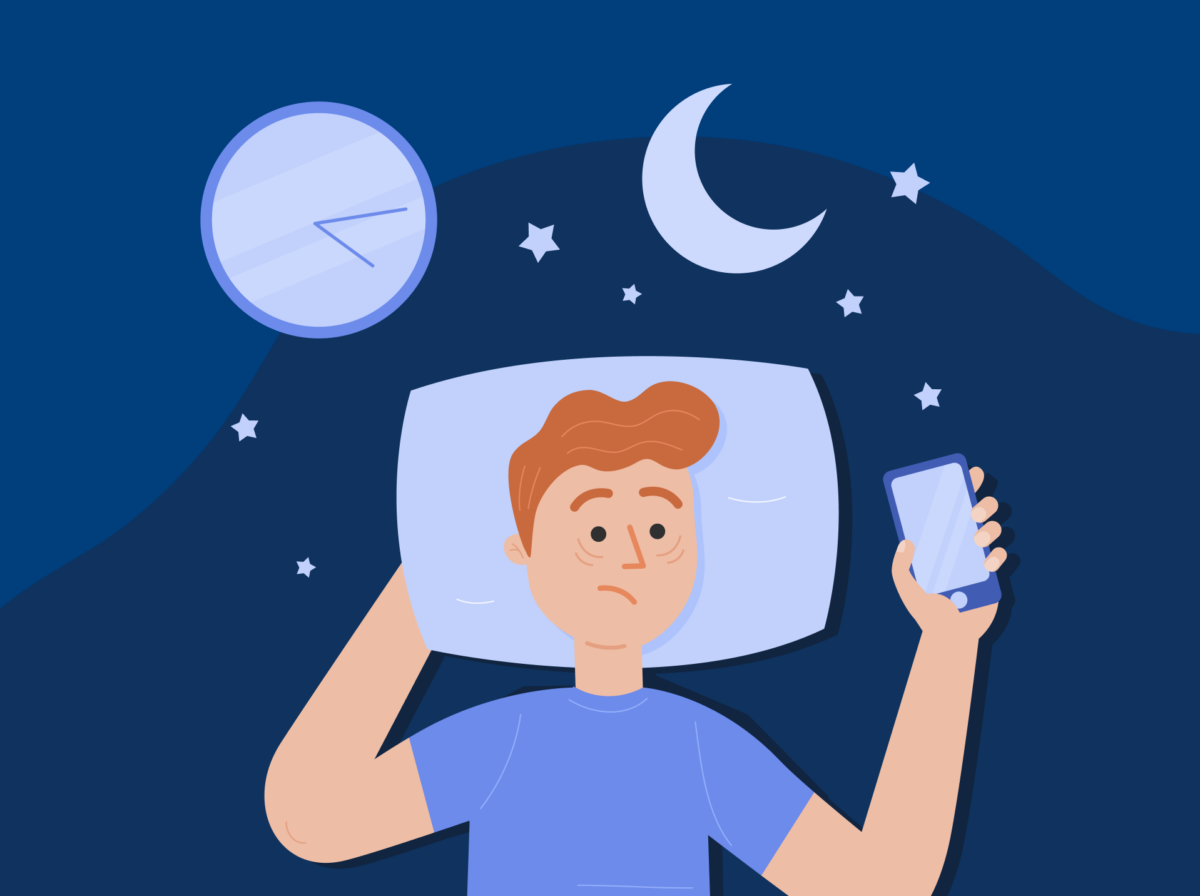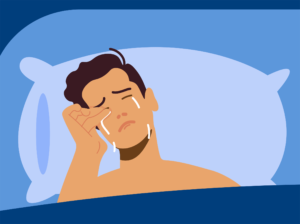Introduction
In our increasingly tech-driven world, glued to screens for entertainment, work, and social connection, a concerning trend has emerged: declining libido, especially among young adults. While there are numerous factors that can contribute to a low sex drive, a finger is often pointed at our insatiable screen time. But can TV and smartphone addiction truly cause low libido? The answer, like many things in health, is complex and requires a nuanced exploration.
Understanding Libido: A Delicate Balance
Libido, or sex drive, is a complex interplay of biological, psychological, and social factors. Hormones like testosterone and estrogen play a significant role, while emotional well-being, stress levels, and relationship dynamics can also significantly impact desire. A healthy libido is essential for a fulfilling sex life and overall sense of intimacy. When it wanes, it can lead to frustration, anxiety, and strain on relationships.
The Allure of the Screen: How Technology Can Hijack Our Attention
Televisions and smartphones have become ubiquitous companions, offering a constant stream of entertainment, social interaction, and information. The very design of these technologies is to be captivating. Social media platforms employ algorithms to keep us scrolling, while video streaming services autoplay content, ensuring we’re never without something to watch. This constant stimulation triggers the release of dopamine, a neurotransmitter associated with pleasure and reward.
The problem arises when this dopamine rush becomes our primary source of gratification. We become conditioned to seek out these digital highs, neglecting other aspects of life, including physical intimacy.
Potential Mechanisms by Which Screen Time Might Affect Libido
Several ways in which excessive screen time can potentially contribute to low libido include:
- Reduced Physical Intimacy: Spending hours glued to screens translates to less time for physical touch and connection with your partner. This lack of physical closeness can lead to a decline in desire and intimacy over time.
- Disrupted Sleep Patterns: The blue light emitted from screens can suppress melatonin production, a hormone crucial for regulating sleep. Poor sleep quality not only impacts energy levels but can also dampen libido in both men and women.
- Increased Stress: Social media can be a breeding ground for comparison and feelings of inadequacy, leading to stress and anxiety. Chronic stress can significantly impact hormone production, including testosterone, which plays a vital role in libido, particularly for men.
- Pornography and Unrealistic Expectations: Easy access to pornography can create unrealistic expectations about sex, leading to dissatisfaction with real-life encounters. For some individuals, excessive porn use can also lead to a disconnect between emotional intimacy and physical desire.
It’s Not Just About Screens: Addressing Other Underlying Causes
While screen time can be a contributing factor, it’s important to recognize that low libido can have various underlying causes. These include:
- Medical Conditions: Certain medical conditions, such as hormonal imbalances, thyroid problems, and chronic illnesses, can impact libido.
- Medications: Some medications, including antidepressants and birth control pills, can have side effects that influence sex drive.
- Relationship Issues: Stress within a relationship, communication problems, and unresolved emotional issues can all contribute to a decline in sexual desire.
Combating Screen Time’s Grip: Strategies to Reclaim Your Libido
If you suspect your screen habits might be affecting your libido, here are some strategies to help you reclaim control:
- Set Screen Time Limits: Establish time limits for TV and smartphone use, especially before bed. Utilize apps or features on your devices to help you monitor and manage screen time.
- Create Screen-Free Zones: Designate specific areas in your home, like the bedroom, as technology-free zones. This fosters an environment conducive to physical intimacy and quality time with your partner.
- Prioritize Sleep Hygiene: Develop healthy sleep habits by establishing a regular sleep schedule, creating a relaxing bedtime routine, and avoiding screens for at least an hour before bed.
- Engage in Physical Activity: Regular exercise is a natural mood booster and stress reliever. It can also improve sleep quality and potentially increase testosterone levels, all contributing to a healthier libido.
- Open Communication in Relationships: Talk to your partner openly and honestly about any concerns regarding your sex life. Explore ways to rekindle intimacy that go beyond screens. Consider seeking professional help, such as couples therapy, if needed.
Remember, You’re Not Alone: Seeking Professional Help When Needed
If you’ve implemented these strategies and your libido remains low, it’s crucial to consult a doctor. They can perform a comprehensive evaluation, including a physical exam and blood tests, to rule out any underlying medical conditions. Discussing your screen time habits with your doctor can also be helpful in determining if it’s a contributing factor. A therapist can also assist in uncovering any psychological factors that might be impacting your desire.
Beyond Libido: The Broader Impact of Healthy Screen Habits
The potential impact of excessive screen time on libido is just one facet of a larger conversation about cultivating healthy digital habits. Limiting screen time offers numerous benefits beyond a potentially more fulfilling sex life:
- Improved Mental Well-being: Reducing screen time can alleviate stress and anxiety, promoting feelings of calmness and emotional well-being.
- Enhanced Focus and Productivity: Constant screen notifications and distractions can hinder our ability to focus. Taking breaks from screens can significantly improve concentration and productivity.
- Strengthened Relationships: Being present in the moment and engaging in face-to-face interactions fosters stronger relationships with loved ones.
- Increased Creativity: Unplugging allows for unstructured time, which can spark creativity and a sense of wonder.
Finding Balance: Technology as a Tool, Not a Master
Technology offers undeniable benefits, connecting us globally and providing endless entertainment and information. However, it’s crucial to maintain a healthy balance. By establishing boundaries and prioritizing real-life connection, we can harness the power of technology without sacrificing our physical and emotional well-being, including a healthy libido.
Remember:
- Libido is influenced by a complex interplay of factors, and screen time might be just one piece of the puzzle.
- Addressing underlying medical conditions, relationship issues, and stress management is crucial.
- Implementing strategies to reduce screen time can benefit your overall health and well-being, not just your libido.
- Don’t hesitate to seek professional help from a doctor or therapist if you’re struggling with low libido or excessive screen time.
By taking a proactive approach and adopting healthy digital habits, you can reclaim control of your screen time and reignite a fulfilling sex life. Remember, a balanced approach is key – technology can be a powerful tool, but it shouldn’t dictate your desires or well-being.
The Science Behind the Link: Unveiling the Studies
While the link between excessive screen time and low libido is a growing concern, the scientific evidence is still evolving. Here’s a glimpse into some ongoing research:
- The Blue Light Connection: Studies suggest that exposure to blue light, particularly in the evening hours, can suppress melatonin production. Melatonin, besides regulating sleep, also plays a role in regulating sex hormones. A 2017 Harvard study found that nighttime exposure to blue light from electronic devices suppressed melatonin and testosterone levels in men.
- The Dopamine Dilemma: Dopamine, the neurotransmitter linked to pleasure and reward, is heavily stimulated by technology. A 2015 study published in the Journal of Behavioral Addictions found a correlation between excessive internet use and decreased sexual desire in young adults. The theory suggests that the constant dopamine rush from screens disrupts the reward system, making real-life experiences, including sex, seem less appealing.
- Pornography’s Potential Impact: While pornography use can be part of a healthy sex life for some, excessive use might contribute to low libido. A 2016 review published in The Journal of Sexual Medicine explored the potential negative effects of pornography, including unrealistic expectations, erectile dysfunction, and decreased sexual satisfaction in real-life encounters.
It’s important to note that these studies are correlational, meaning they establish a link but not necessarily causation. Further research is needed to fully understand the complex interplay between screen time, brain chemistry, and human behavior.
Beyond Libido: Exploring the Ripple Effect on Relationships
A decline in libido can have a significant impact on romantic relationships. Here’s how excessive screen time might contribute to a strain in your love life:
- Reduced Physical Intimacy: Constant engagement with screens creates physical and emotional distance between partners. Cuddling, holding hands, and other forms of non-sexual intimacy are crucial for fostering a strong bond. When replaced by screen time, these connections weaken.
- Communication Breakdown: Spending evenings glued to phones or TVs hinders effective communication. Sharing thoughts, feelings, and experiences strengthens relationships, something that gets sidelined with excessive screen time.
- Negative Emotional Spillover: The stress, anxiety, and frustration associated with excessive screen time can spill over into your relationship. This negativity can create tension and make it difficult to connect with your partner on a deeper level.
Making a Change: Practical Tips for Couples
If you and your partner are concerned about the impact of screen time on your libido and relationship, here are some tips to work towards a healthier balance:
- Schedule Tech-Free Dates: Dedicate specific evenings or weekends to be completely screen-free. Plan activities you both enjoy, whether it’s going for a walk, trying a new restaurant, or simply spending quality time talking and connecting.
- Create a Pre-Bedtime Routine: Establish a calming bedtime routine that doesn’t involve screens. Dim the lights, read a book together, or practice relaxation techniques like meditation. This signals to your body that it’s time to wind down and prepares you for a good night’s sleep, positively impacting your overall well-being and potentially your libido.
- Seek Professional Help: If communication difficulties or underlying emotional issues are contributing to the strain on your relationship, consider seeking professional help from a couples therapist. They can provide tools and strategies to improve communication, address emotional roadblocks, and strengthen your bond.
Remember, a healthy relationship thrives on open communication, quality time, and physical intimacy. By prioritizing these aspects and setting boundaries around screen time, you and your partner can create a more fulfilling and connected relationship.
The Digital Detox Movement: A Growing Trend
In response to the growing concerns about the negative impacts of technology overuse, the digital detox movement has gained momentum. This movement promotes a conscious effort to reduce screen time and disconnect from technology for specific periods.
Here are some key aspects of the digital detox movement:
- Mindful Technology Use: Digital detox advocates encourage a more mindful approach to technology. It’s about using technology intentionally and purposefully, rather than letting it control our lives.
- Focus on Real-Life Experiences: The movement emphasizes the importance of prioritizing real-life connections, hobbies, and activities that bring us joy and fulfillment.
- Improving Mental and Physical Well-being: Digital detox proponents highlight the potential benefits for mental and physical health, including reduced stress, improved sleep quality, and increased focus.
Digital Detox Strategies for the Modern World:
While completely disconnecting might not be feasible for everyone, there are practical digital detox strategies you can implement:
- Designated Screen-Free Zones: Establish specific areas in your home, like the bedroom or dinner table, as technology-free zones. This promotes present-moment awareness and fosters meaningful interactions with others.
- Airplane Mode Advantage: Utilize airplane mode on your phone during commutes, meetings, or social gatherings. This allows for focused engagement with the present moment without the constant distraction of notifications.
- App Management: Take control of your digital environment. Utilize screentime monitoring tools and apps to understand your usage patterns. Consider deleting social media apps or setting time limits to curb mindless scrolling.
- Embrace Nature: Disconnect from technology and reconnect with nature. Go for walks, spend time in parks, or engage in outdoor activities. Immersing yourself in nature can be a powerful way to reduce stress and improve overall well-being.
- The Power of “No”: Don’t be afraid to say no to the constant pressure to be available online. Set boundaries with work and social media to protect your personal time and prioritize your well-being.
Conclusion: Regaining Control and Reclaiming Your Libido
The link between excessive screen time and low libido is a complex issue with ongoing research. However, the potential impact on our physical and emotional health is undeniable. By adopting mindful technology habits and prioritizing real-life connections, we can reclaim control of our screen time and cultivate a healthier relationship with technology.
Remember, a healthy libido is just one facet of a fulfilling life. By embracing a balanced approach to technology, prioritizing sleep, managing stress, and addressing any underlying medical conditions, you can work towards a more satisfying sex life and overall well-being.
Don’t hesitate to seek professional help from a doctor or therapist if you need guidance and support. Technology can be a powerful tool for connection and information, but it shouldn’t dictate your health, happiness, or relationships. Take charge, establish boundaries, and create a life that is enriching and fulfilling, both online and off.





